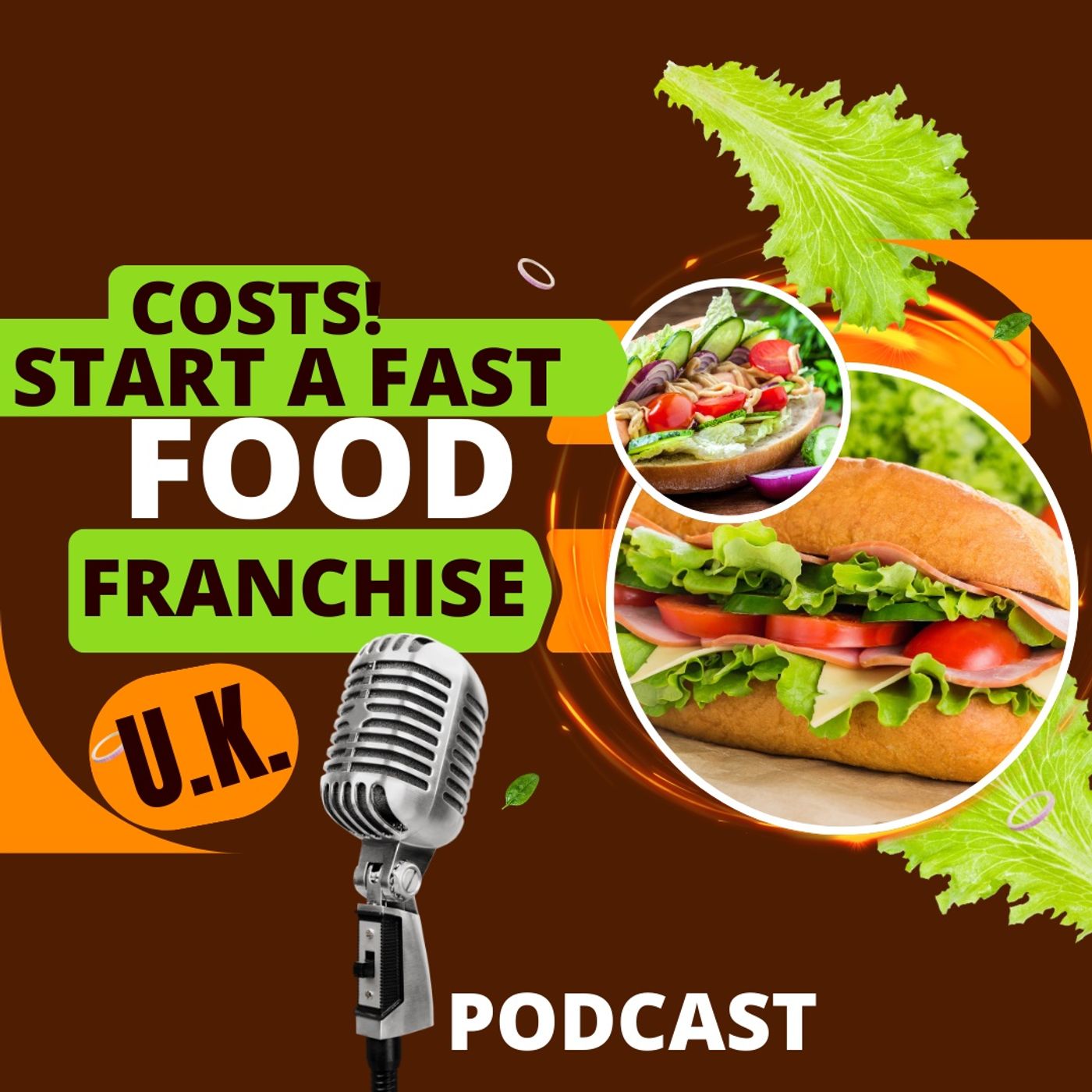Jan 28 2025 26 mins
How much does it cost to open a fast food franchise in UK?
Below is an overview of the key expenses you’ll likely encounter when investing in a fast-food franchise in the UK. Keep in mind that costs can vary significantly depending on the brand, location, and type of fast-food concept you choose. Always conduct thorough research and consult with franchise representatives or financial advisors for the most accurate figures.1. Initial Franchise Fee
Become a supporter of this podcast: https://www.spreaker.com/podcast/marketing-food-online-food-entrepreneur--2797701/support.
Below is an overview of the key expenses you’ll likely encounter when investing in a fast-food franchise in the UK. Keep in mind that costs can vary significantly depending on the brand, location, and type of fast-food concept you choose. Always conduct thorough research and consult with franchise representatives or financial advisors for the most accurate figures.1. Initial Franchise Fee
- What It Covers: This upfront cost typically grants you the rights to operate under the franchisor’s brand name, access to their business model, and initial training.
- Typical Range: Anywhere from £10,000 to £50,000+, depending on the brand’s market presence and level of support offered. Premium franchises with strong brand recognition may charge higher fees.
- Restaurant Fit-Out: Converting or refurbishing a property to meet brand standards (e.g., signage, interior decor) can be a major expenditure.
- Kitchen Equipment: Ovens, fryers, grills, refrigeration units, point-of-sale systems, and safety equipment must meet the brand’s specifications.
- Projected Range: Costs may vary from £80,000 to over £200,000. Larger spaces and higher-end equipment drive up expenses.
- Property Costs: Location is critical in fast-food franchising. Prime retail spots in city centers or busy high streets generally cost more in rent than suburban or less trafficked areas.
- Lease Terms: Franchise agreements often span 5–10 years, and you may need to commit to a lease of similar length.
- Upfront Deposits: Expect to pay a deposit or rent in advance, plus possible legal fees.
- Ongoing Royalty Fees: Most franchisors charge a percentage of monthly turnover (often between 4% to 8%) or a flat fee. This covers continued use of the brand and ongoing support.
- Marketing/Advertising Contributions: Typically 1% to 5% of turnover, used for national or regional promotional campaigns. Some franchises may also require local store marketing spend.
- Day-to-Day Expenses: This includes staff wages, utility bills, raw ingredients, and unexpected maintenance.
- Cash Flow Cushion: Having adequate working capital helps cover initial losses until the business hits break-even. Financial advisors often recommend reserving at least 3–6 months of operating costs.
- Initial Training: Often included in the franchise fee, covering corporate culture, operations, customer service, and marketing.
- Ongoing Support: Some franchisors charge extra for refresher courses, extended training programs, or consultancy services.
- Bank Loans: Many major UK banks have dedicated franchise lending departments familiar with established fast-food brands.
- Government Schemes: Programs like the Start Up Loans scheme may provide low-interest loans for new entrepreneurs.
- Investors/Partners: Pooling resources with partners can reduce the individual financial burden but requires carefully structured agreements.
- Franchise Solicitor: It’s wise to have a solicitor review your franchise agreement to ensure fair terms and compliance with UK regulations.
- Accounting Services: Consider professional accountants to manage cash flow, tax obligations, and financial projections.
Become a supporter of this podcast: https://www.spreaker.com/podcast/marketing-food-online-food-entrepreneur--2797701/support.
